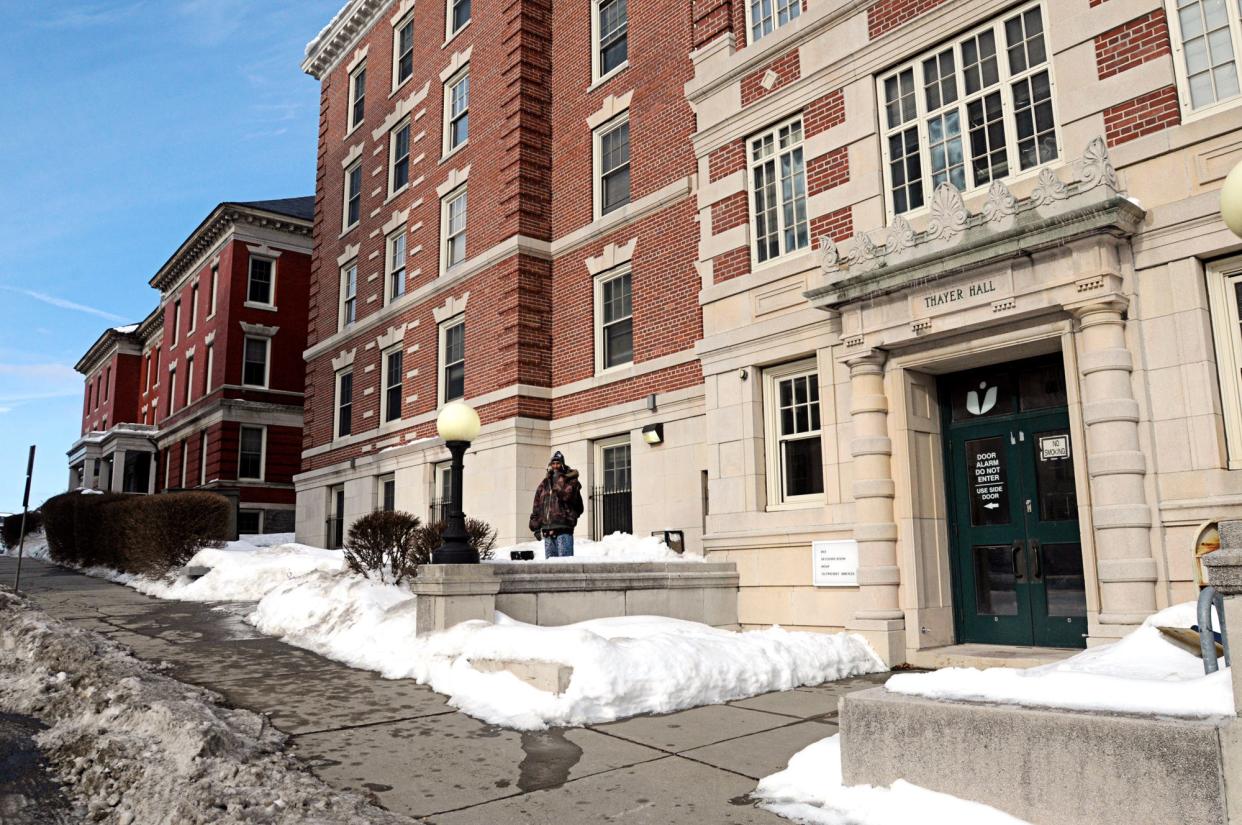City rolls out crisis response pilot program that sends clinicians to 911 calls

WORCESTER — A little over a year after UMass Memorial Health – Community Healthlink and city departments teamed up to map a strategy for mental health experts to respond with police officers to certain emergencies, the city announced a pilot program for the model.
To start, Community Healthlink will have teams of field clinicians working out of its headquarters on Jaques Avenue from 3 to 11 p.m. each day. The teams will respond to a limited number of areas that are geographically centered around the dispatch areas of the Worcester Fire Department’s south division on Southbridge Street and the fire station on Park Avenue.
Crisis teams consisting of mental health clinicians, case managers and peer educators will be dispatched to certain calls. They will be tasked with helping to deescalate situations, working to stabilize clients in crisis and connecting them to local mental health and substance use resources.
The city said the program follows a crisis response model designed to handle emergency calls where substance use or mental health are factors in the emergency.
City Manager Eric D. Batista said the city hopes it can eventually expand the program to the entire city on a 24/7 basis.
"We know that's a bigger operation, it requires more resources and funding, but we need to be able to kickstart it," Batista said.
The 911 call takers will determine the appropriate dispatch based on the information they receive from the caller and first responders from multiple or all agencies may respond in some cases.
When only field clinicians are dispatched, the route officers from the police department will be notified of the location of the call in case they need to assist clinicians who will have cellphones and a panic button device to alert dispatch in case they need help.
Police officers may also call the crisis response team in case they encounter a subject in need of mental health assistance.
Batista said the crisis response program began early this week.
The city manager said the areas around the two fire stations were selected for multiple reasons: As the pilot areas because of proximity to firefighters, the area having a higher number of calls related to mental health and substance use and the stations are the busiest in the city in general.
"We felt strongly those were the two areas that we could start the process in evaluating where the mental health services could be provided," Batista said.
One of the areas covers the breadth of Worcester Polytechnic Institute down to Coes Park. Some of the streets in the area include Main, Chandler, June and Pleasant streets.
Some streets in the the other pilot area include Quinsigamond Avenue and Cambridge, Southbridge and Canterbury streets.
A new model for responding to crises has been talked about in the city for some time and gained momentum following the proposal of policing reforms in early 2021 following protests over the murder of George Floyd.
In the summer of 2021, then-City Manager Edward M. Augustus Jr. set aside $1 million to begin the program and subsequently selected Community Healthlink as the lead partner agency in May.
Batista said the initial thought for launching the program was that the city did not employ clinicians who could do crisis response work and it wanted to partner with agencies with those resources. Other communities across the nation have also adopted similar models, Batista said.
"We understand and know that sometimes our officers or firefighters or EMS are responding to calls that may need other professional services," Batista said. "And oftentimes it's mental health services. We want to make sure that we're providing the adequate resources to these calls."
Community Healthlink developed the program after partnering with community groups, public safety agencies, hospitals, service providers and more.
City agencies involved in the model include first responders and the city’s Department of Health and Human Services.
The city will continue to evaluate the model as the pilot program progresses. Batista said it was still early to hear feedback on the initial pilot program, saying they will assess how it is going in the next couple of weeks.
Community Healthlink has also recently been in the news following the suspension of its multiple substance use programs in April after a surprise state inspection. Tamara Lundi, the then-president of Community Healthlink, was also announced to be vacating her role.
On June 27, the City Council approved a motion officially calling for UMass Memorial to reopen the substance use programs as quickly as it is safely able to do so.
Both UMass Memorial Health and the city said following the suspension of programs that Community Healthlink would continue to partner with the city for the crisis response program.
While it had been previously reported the city was aiming to begin the crisis response program in June, Batista said preparations did not see any major delays.
This article originally appeared on Telegram & Gazette: City rolls out crisis response pilot program that sends clinicians to 911 calls
